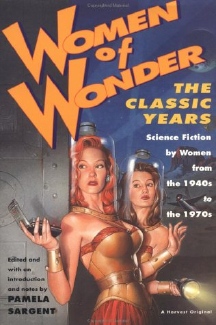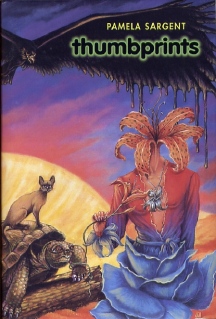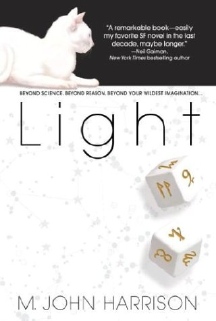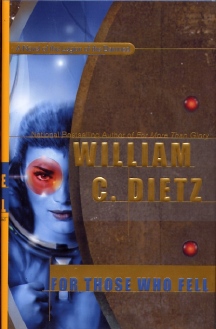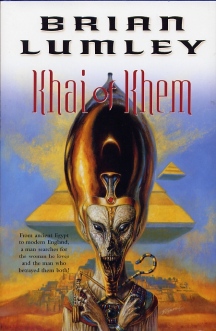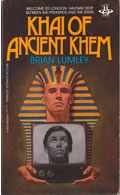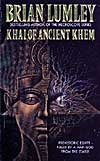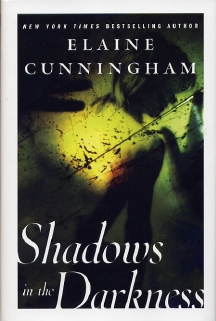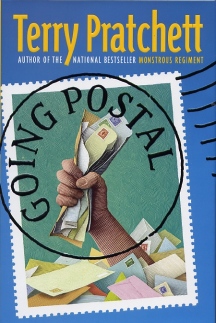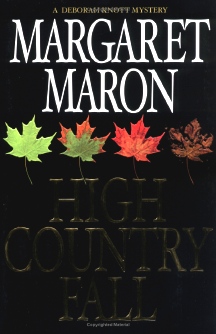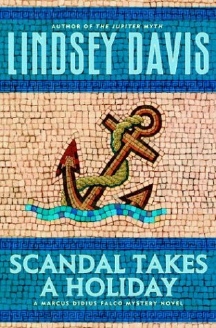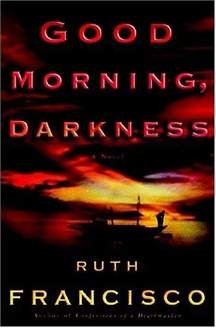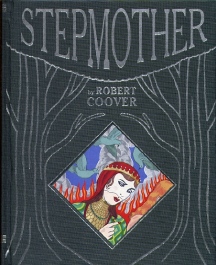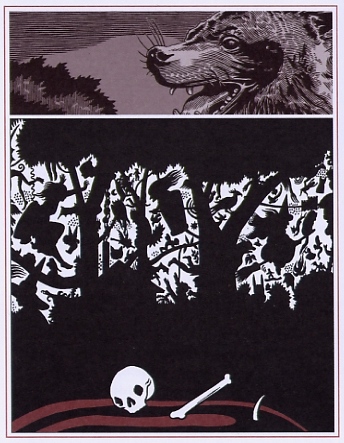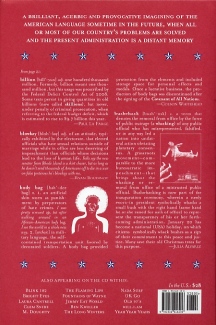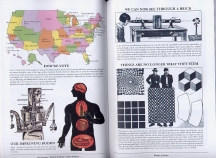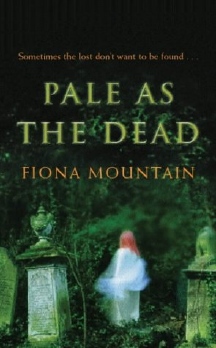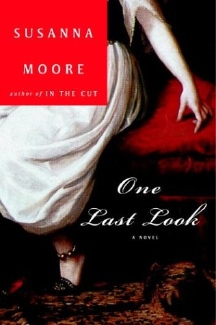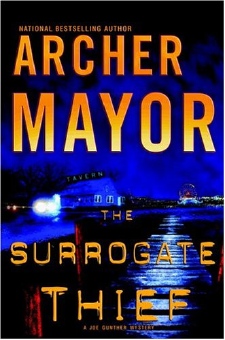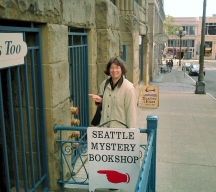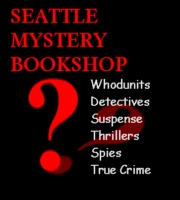|
|
|
This Just In...News from the Agony Column
|
10-08-04: Pamela Sargent Leaves 'Thumbprints'; Seeing the 'Light' With M. John Harrison; William C. Dietz Speaks 'For Those Who Fell' |
|||||||||
Golden
Gryphon's Latest Short Story Collection
Of course, these days, like most smart writers, she's got a website, and it's well worth your time. It's possible you know her as an editor; that's my first association for her. She's edited five 'Women of Wonder' anthologies, 'Bio-Futures', and two 'Nebula Awards' anthologies, making her something of a science fiction writer's science fiction writer. There are plenty of chances to see these in hardcover, softcover and used at places like my local used bookstore of choice, Logos. Then of course, you may know her for her novels. Admit it; you've seen her Star Trek novels. But she's well known for her science fiction work, including the 'Watchstar Trilogy' ('Watchstar', 'Eye of the Comet' and 'Homesmind'), the Venus trilogy ('Venus of Dreams', 'Venus of Shadows' and 'Child of Venus') and 'The Shore of Women'. Most of my readers who are familiar with her work are likely to have read these titles, or at least seen them on the shelves.
Going against the conventional wisdom, which says write in one genre, she's written more than just science fiction. It's the kind of thing that drives Dan Simmons' publishers crazy. In fact, she thought her well-received historical novel about Genghis Khan, 'Ruler of the Sky' -- told from the viewpoint of the women in his life -- would be her breakthrough work. But she was the victim of a common occurrence in the publishing industry. It works like this. An editor who works for a publisher selects your novel for publication, and you work with the editor pouring your heart and soul into the book, with their input and guidance; how much depends on the relationship between writer and editor. When the work is completed and ready to publish, it's the editor who takes the point position and makes sure the novel gets not only published, but publicized, reviewed and noticed by (these days) sites such as this. In other words, the editor helps move the book, not only through the labyrinthine tunnels of the publishing house itself, but also out in the world. It's a lot of work. So if an editor leaves a publishing house while in the midst of doing your book, the editors who come in to replace them may or may not have the same investment in your book. If they don't, then you might have a book that gets essentially orphaned. It's released without publicity, without reviews and simply shipped to the store. This is what happened to 'Ruler of the Sky'.
Readers who enjoyed the Venus trilogy will get to visit once again in 'Venus Flowers at Night', where a figure who was a historical legend is brought to life. This story offers a fascinating look at Islam and a terraformed Venus. The title novella, 'Thumbprints', is original to this collection, and appears to hinge on Sargent's experiences in the publishing world. Given what happened to her breakthrough novel, one presumes that it trends towards the dark side of the spectrum. This is, of course a Golden Gryphon book, and all that includes; beautiful binding, a wraparound dust-jacket painting by Jill Bauman, and an introduction by James R. Morrow. Let me tell readers that this introduction is a total hoot, superbly well-written, and ought to get some sort of award. Morrow is one of my favorite writers; his imprimatur here certainly should mean something to you if you're unfamiliar with Sargent's work. Which, of course, you won't be shortly after getting the book. As ever, the best way to do so is directly from the publisher, via their website. Point, Click and then read. |
|||||||||
A
US Trade Paperback from Bantam Spectra
But until the good folks at Bantam Spectra brought it out last month, you'd have had a hard time finding it in the US. First published in 2002 in the UK by Victor Gollancz, 'Light' required the kind ministrations of an especially observant editor over at Bantam Spectra who wrote me to at the time to tell me about the impending publication of this and other equally delectable books. But this is the good news that's here now, so let's celebrate and reward the publisher for bringing us this complex and disturbing novel. Look, if you're expecting spaceships shooting across the cosmos, clear-cut good-guys and simplified bad guys, this is definitely not the novel for you. 'Light' is rather tough sledding, featuring repellent geniuses and a future so well-wrought it hovers constantly on the edge of comprehensibility. But the language is gorgeous, surreal and mad, oh, so mad. It's the madness that really disturbs and upsets, a combination of horrific violence and intense genius on both sides of the equation. That is, you have a genius of the language writing about very intelligent madmen who are in the process of discovering the keys to the universe, both here and in the future created by the present-day discoverers. Harrison shows us the alien creations of human minds. In the present, they manifest themselves as hallucination and a drive to perform savage murders; in the future, they manifest as the incomprehensible meeting of space and time. Readers deserve the absolute best that the publishing world has to offer, and they can consistently find it in Harrison's novel. It certainly won't win over those who look to science fiction as comfort reading, easy identified and understood. Even after finishing 'Light', you might wonder what it is that you've just read. You may be angry or annoyed or enthused. But you'll know you've just read; you'll have seen the 'Light', and like it or not, you'll have been changed by it. |
|||||||||
The Return of the Legion of the Damned
Like most military SF, there's a fairly strong sense of American nationalism underneath the cyborg components of Dietz's hardcore adventure. The insectoid Ramanthians are looking for home for the billions of eggs that their Hive Queen will lay. Sending a fleet against the Hive is impossible; sending in a small ship stuffed with characters from previous novels is the last, best hope. With returning characters from previous novels Antonio Santana and Charlotte Vanderveer, it's time to break out the far-future equivalent of a six-pack and get the goddamned guns blazing. Look, it's no coincidence that the Federation of Planets they're protecting is called the Confederacy. Hot damn! Of course, opposing them are some dastardly French, no scratch that, Thrakis traitors, who have cut a deal with the filthy communist, no, I mean insect horde. Those damn ants are up to no good at all. They hope to develop the old FTL drive and do what I do every night, Pinky -- TAKE OVER THE WORLD, NO I MEAN UNIVERSE! The appeal of Dietz's work lies in his ability to provide 1) nonstop action and 2) the"We kick your ass" subtext that appeals to every reader whether you want to admit to it or not. Now that doesn't mean that readers who won't admit to it will want to read about it. Quite the contrary. But if you, like many -- and even occasionally, me -- take comfort in reading about mayhem on an interstellar scale, then this is probably a good bet for hours of slack-jawed drooling readertainment. And you know, if you don't like this kind of novel, you might just have to get your ass kicked. On principle. |
|
10-07-04: 'Khai of Khem' by Brian Lumley; Elaine Cunningham Sees 'Shadows in the Darkness'; 'Going Postal' With Terry Pratchett |
|||||||||
Bringing
a Mass Market Paperback Back to Life as a Hardcover Novel
But sometimes a book gets released first in MMPB format that really deserves to be released in hardcover, so that True Fans of writing can have a nice copy for their libraries, or simply a copy that's easier to read than the usual MMPB. One of the books I felt that way about in the early days of reading and reviewing was Brian Lumley's 'Necroscope'. So we can thank Tor for eventually releasing that novel in a trade hardcover edition, and thank Subterranean Press when they eventually release their deluxe limited edition. I have to say that it sounds quite outstanding, and precisely like what I might have hoped for those twenty-something years ago. Illustrated by Bob Eggleton, here's what you get: A full-color, wraparound dust jacket Ten full-page black and white interior illustrations Four full-color interior illustrations One full-color gatefold (pull-out) interior illustration Black and white endsheets Assorted black and white vignette and spot illustrations
Lumley has a huge pile of novels that were released as cheesy MMPB's in the 1980's, but here in the glittery 21st century, we're apparently all ready for a gorgeous Tor hardcover re-issue of Lumley's 'Khai of Khem'. Once again, Bob Eggleton is Brian Lumley's illustrator, offering us a beautifully executed cover of garish hideousness that befits Lumley's enjoyable overkill. I have to say that it doesn't appear that we're in Ancient Egypt anymore, Toto. As it often happens, 'Khai of Khem', originally titled 'Khai of Ancient Khem', was released over 20 years ago as in MMPB format. It's a highly-regarded Lumley novel about the son of an ancient Egyptian architect who is condemned to slavery, then embarks upon an adventure that leads him to the 20th century and beyond.
From cheesy mass-market paperbacks to solid mass-market hardcovers, Lumley is getting the attention he always deserved, and now, in turn readers can pay attention to him. You can check out his web page, and more importantly, you can sit down with this slim but meaty novel about every damn pulp thing you can imagine and a few you can't. Swill a good beer. Get yourself some hot and greasy chips -- that's fries to you mate. Indulge your brain. Shut down and enjoy mass-market cheese in a big old hardcover suit. This is what reading is all about. |
|||||||||
Haven't
I Seen This Title Before?
Gwen "Gigi" Gelman is an ex-cop who was tossed from the force when a a simple bust goes bad and turns into a bloodbath. With the help of a DA who owes her a favor, she starts PI biz. What, you expected the ex-cop to start maybe, driving an ice-cream truck? So far, well, you've read the story in about 10,000 Marcia Muller knock-offs. Where things take a bit of a twist is when Gigi tries to unearth her past. Her parents were murdered when she was as child, and she spent her life as an orphan shuffling between institutions. She's always felt lonely, odd and out-of-place. Now, the case of a fourteen year-old runaway is drawing her into a world of pornography, blackmail, murder. And perhaps beyond. The prose here looks to be pretty solid, and the novel itself is a mere 301 pages, and so, seems pretty readable. Readers know I'm something of a sucker for a good supernatural detective story, and while this doesn’t look to be as wild and as wooly as Simon R. Green, given that Green already has that territory covered, this looks to map out some new territory. Readers who enjoy Jim Butcher and Laurell K. Hamilton might have themselves a decent hardcover book to buy. And the fact that Tor has enough confidence in this author to give her a hardcover novel speaks for something as well. Of course, it's not like Cunningham is coming out of nowhere. She's done a raft of books for the TSR/Wizards of the Coast, and had an NYT bestseller with a Star Wars title. If you're really curious, you can take a peek at her website where she reveals why you should only become a writer because you want to write, to wit: "After my first book came out and fan letters started to trickle in, my husband observed that the stamp required to mail a response more than wiped out my income on one copy of the book." My suggestion: Buy her hardcover, and if you must contact her, try email. |
|||||||||
Get Yer Signed First
His latest DiscWorld novel -- 'Going Postal' -- is out, and it's a "Lord Vetinari" thread novel. You see, Discworld has grown so large and is so complex that Pratchett can set his novel in any of several "threads", each of which feature characters who may or may not cross over to other threads. For example, 'Night Watch', which I greatly enjoyed last year, is part of the Sam Vimes novels, a thread which started with 'Guards! Guards!'. Lord Vetinari is featured in a lot of books, some more than others, and here he doles out the punishment of one Moist Von Lipwig. Die -- or run the Post Office. The foolish man takes the hard way, and decides to run the Post Office. 377 pages of Pratchett-style entertainment ensue. Of course, you probably know all this. But you might not have twigged to the fact that your local independent bookseller -- in my case, for example, not only Bookshop Santa Cruz, but also Aptos Bookworks and Capitola Book Café -- all have signed first editions. Probably not first printings, because there are like fourteen zillion printings, but still, if you're going to get a Pratchett title, you might as well get a signed one. Poor Terry had to sit there and sign them, you might as well buy them and enjoy them. Or, alternately, you could get a life, get a job. How does working at the Post Office sound? |
|
10-06-04: Margaret Maron/Deborah Knott/'High Country Fall', Lindsay Davis/Didius Falco/'Scandal Takes a Holiday', Ruth Francisco/Frances Oliver /'Good Morning Darkness' |
|||||||||
| A
Trio of New Mysteries from Mysterious Press by Terry D'Auray Does the mystery genre have a higher proportion of women writing than other genres? Although that's likely not the case, it would certainly seem so with the recent spate of new releases from female authors. Covering all the bases, from continuing series to stand-alone, from historical to regional, from gumshoe to cozy, any mystery reader should find something to like from this trio.
Opting to "head for the high country", Deborah agrees to fill-in for a vacating judge in a town some five hours from home and ends up presiding over a murder case that takes an ominous turn. Maron's multiple Agatha Award winning Knott series carries a strong rural southern flair; her writing is often compared to that of Carson McCullers or Margaret Mitchell. Maron mixes strong characterization – Knott is spunky, sensible and blessed with all-too-uncommon common sense – with the language and atmosphere of the rural south and plots focused on the often uneasy confrontation between high-tech urbanization and old-style agrarian heritage to create a suspenseful and satisfying series. Worth tracking down, if you can find any of them, is Maron's older Sigrid Harold series, eight books in all featuring Sigrid, a police lieutenant in New York City. With a markedly different tone and viewpoint, Maron's earlier series is solidly urban in feel, and her primary character is solidly stunted emotionally, a female "loner", competent, but unconnected. Maron plays cagey when asked, as she is time and time again by rabid fans, if she'll ever resurrect the SH series.
Combining wise-cracking humor, sensitive but definitely pointed social commentary, and adventure or, more often, misadventure of any and all sorts, Falco, his dog Nux, and the witty and eccentric Helena Justina investigate the disappearance of the gossip columnist of Rome's Daily Gazette. Davis's Falco series is well researched, brimming with descriptive detail, and historically accurate. But it is Davis' sly and wry wit, her inventive "Lindseyisms" (neologisms that are now eagerly sought out by her readers) and her fearlessness in writing frankly of the filth and squalor of ancient Rome, that have earned her a strong, loyal and highly vocal following.
Her new book, 'Good Morning Darkness' (Mysterious Press, Time Warner, September, 2004, $23.95) seems a much darker tale. The story centers on the disappearance of femme fatale Laura Finnegan and the obsessive reactions of her boyfriend, her martial arts instructor, her boss and the Mexican fisherman who had long admired her from afar. Then a disembodied arm washes up on the beach in Marina del Rey, soon followed by another on the beach at Malibu. Matching the body parts to the missing Laura is puzzle number one; identifying the killer from among the many possibilities is puzzle number two. Both puzzles land in the hands of LAPD Detective Reggie Brooks. 'Good Morning Darkness' promises sexuality and spirituality in combination with an original, fast-paced mystery, and Ruth Francisco's clearly talented enough to deliver on all counts. |
|
10-04-04: Coover's Stepmother and an All-Star Future Dictionary of America; Pale as the Dead by Fiona Mountain |
|||||||
McSweeney's Past, Future and Presents for the Reader
McSweeney's latest releases simply jumped onto my must-buy list the second I first saw them in BookShop Santa Cruz. Robert Coover's 'Stepmother' (McSweeney's; September 7, 2004; $14.00) issued in a highly attractive cover sans DJ, continues the writer's post-modern takes on fairy tales in the highest possible style. Illustrated by Michael Kupperman, the ninety-page novella length work promises, quoting from the back cover sticker ("This sticker is removeable.") "...there are princes, there are painful castrations. There are grim reapers, frisky maidens, and seductive ogresses." Gee they say all that as if these were all good things. Your mileage, of course, may vary. Just be glad Coover's not writing your biography.
Readers who pick this up in the bookstore are going to find themselves as entranced as if they themselves were the target of a wicked spell or two. Wicked is certainly the watchword here, in all senses. Not only is the stepmother causally wicked, Coover himself displays a wicked sense of humour as he creates one character after another who viciously demolishes our expectations. Often described as post-modern, Coover offers no challenges when it comes to writing clear, easy-to-read prose. This novella is a simply-written page-turner that turns the worlds we think we know upside-down with a sort of smart satire that manages to seem snappy and intelligent. The depths of Coover's thoughts are all right there on the surface. It's a tough trick to pull off, but Coover manages to do so by virtue of not displaying his virtuosity. In a way, it reminds me of what you might expect were you to hire George Pelecanos to pen a fairy tale. This is a deliriously diamond-hard look the unpleasant consequences of all the moralizing you find in these sorts of stories. Kupperman's illustrations have the sort of sordid appeal of early 20th century pornography. They're not explicit in what they show, only in what they occasionally suggest. And by this time, you should know that this is not the book to replace Harry Potter as bedtime reading for your pre-teen children. What you need to do is to hunt this down in the store, or, better yet, order it from McSweeney's website. (More money for the small press publisher is always good.) It's one of those books that you can read in an afternoon with a glass of wine at your side. Just make sure you pour the wine yourself. Helpful strangers are not to be trusted. |
|||||||
Re-Defining
The Dictionary
So I must admit that when I saw 'The Future Dictionary of America' (McSweeney's ; September 7, 2004; $28), edited by Jonathan Safran, Nicole Krauss and the staff of McSweeney's, it had to meet a high standard. It's one thing to simply gather a few faux definitions and string them together. It's quite another to produce an actual dictionary. I'm here to report that McSweeney's have done the latter, with a significant political slant. But you can pretty much punt the slant and simply enjoy the sumptuous production here. McSweeney's have apparently spared no cost and managed to put together a beautiful work that has all the talking points of an actual dictionary, and quite a bit more. In the final analysis, for me it all comes down to the look and feel here. From red front to red back cover, this book gets all the dictionary points right. The setup is pretty simple. This book purports to be "the sixth edition since 2016", offering the reader "an array of useful terms". I found dates in the entries up to 2107, and presumably the date of the dictionary is sometime after those dates. Each entry is individually credited to the authors who are too numerous to mention in this article beyond saying that they include luminaries like TC Boyle, Daniel Handler, Colson Whitehead, Dave Eggers, Stephen King, Joyce Carol Oates, Art Speigelman and Kurt Vonnegut. So you have something of an all-star show here. As far as layout, production and publication go, the Dictionary is peerless. It's beautifully done, lovingly illustrated and includes indices and appendices. It also includes a center section printed in color with a number of illustrations that are sublime and absurd. In every aspect of presentation the Dictionary is what it pretends to be.
The catch, of course, is that this book has been written to benefit progressive causes and specifically to do what it can to help bring about the removal of the current American administration from office. This is apparent in many but not all of the entries both in the dictionary itself and on the CD that accompanies it. Needless to say, the Ann Coulter crowd is not going to be able to appreciate this book in the same way as the Al Franken crowd. But readers divorced from either side of that discussion will certainly be able to appreciate the pure craft and dedication that's gone in to creating a dictionary from a future that takes itself seriously -- but not too seriously. |
|||||||
| The
Ancestor Detective By Serena Trowbridge
'Pale as the Dead' is, according to her website, likely to be a film at some point in the future. It tells the story of Natasha Blake, a twenty eight year old ancestor detective, whose clients are looking to the past to solve problems and mysteries of the present. 'Pale as the Dead' concerns Bethany, a young woman with vague connections to the Pre-Raphaelites, which Natasha uses to find her when she vanishes. Like 'Isabella', it uses many real-life historical figures from the past, rewriting subjective history to a small extent. Fiona Mountain has a new novel coming out in October 2004, which is the second in the series of her Natasha Blake books, entitled 'Bloodline'. |
|
10-04-04: Susanna Moore Gets 'One Last Look'; Archie Mayor's Latest Joe Gunther Mystery; A Visit To Seattle Mystery Bookshop |
||||||
|
A Woman's Primer for Victorian India by Terry D'Auray
Her newest, 'One Last Look', now in trade paperback (Vintage Books, $13.95) is a historical-political novel of one British woman's introduction to India under British rule in 1836. Moore's book is a thoroughly researched and richly detailed depiction of the lure of the exotic and unusual, mixed with an increasing disdain of the constricted colonialism of British rule. Moore's forte is in creating convincing, engaging female protagonists with keen powers of observation, whatever the setting. Her prose is lush and sensual, enveloping the reader in a fully evocative and often visceral experience, while her storytelling is original and perceptive. 'One Last Look' offers an enticing break from my normal mystery fare. |
||||||
|
The Surrogate Thief by Terry D'Auray
Gunther's a straight-up cop, rock solid, appropriately tough and sensitive, and always thoroughly believable, who has grown ever stronger as the series progresses. Mayor writes extremely detailed police procedurals enriched with keenly observed New England settings and a strong Yankee sensibility. Mixing quaint small-town Vermont characters with contemporary "big-city" criminal darkness, Mayor's storytelling talent and strong characterization has kept this series fresh and engaging for more than sixteen years. Long-time series readers will inevitably have their personal favorites. Mine would have to be last year's 'Gatekeeper' (in paperback October 1 from Warner Books, $6.99), with its third-person narrative told from multiple points of view. But 'The Surrogate Thief' beckons with its focus on Gunther's personal tale mixed with Mayor's consistently reliably police procedural. |
||||||
| Get
a Clue by Terry D'Auray
Seattle Mystery Bookshop is all that a specialty bookstore should be – reasonably large, warm, inviting, filled floor to ceiling with books both new and used, and staffed by helpful, friendly people who are avid mystery junkies with varied sub-genre tastes and superb memories. Shelf talkers abound, each staff person merchandises his or her own section of recommended favorites (find someone with tastes that parallel yours and just read everything they suggest). Author appearances are frequent and many of the books are collectible signed first editions. And, of course, they have a strong and complete section of mysteries, hardback and paper, from local authors.
Having roamed the store for a half hour or so, chatting with the staff and each other, my friend and I were getting ready to leave when she spontaneously thought to ask if there were any mystery books featuring Dr. Sam Johnson. (Her father is a retired Columbia English professor with a long and abiding love of Dr. Johnson). "Now that's a challenge" I thought, despite knowing that someone, at some time, has written some mystery about almost everyone. The three booksellers pounced on the question like cats on a fluttering moth, searching their collective memories and various shelves for an author whose name one of them remembered started with a "D". O.K, I'm impressed. But I'm even more impressed when (yes, with a little help from the StopYoureKillingMe.com website) they turn up Lillian De La Torre, author of 'Dr. Sam Johnson, Detector' written in 1946 and several follow-up books in the series. Although they had none of the titles in their store – and thus didn't "make a sale" - they were all thrilled at having successfully solved a mystery for a patron. Kudos to the Seattle Mystery Bookshop! Check out their website at http://www.seattlemystery.com. |

